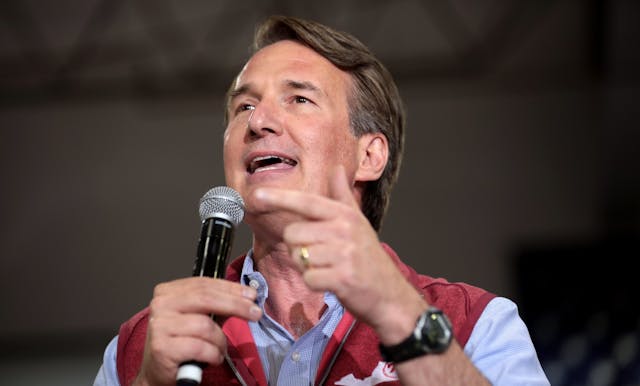5 Issues That Deeply Divide Republicans and Democrats -- But Really Shouldn't

Problem solving and uncompromising virtues are mutually exclusive, but in politics they lead to a new level of dysfunction. That was a reason why moderate Republican Senator Olympia Snowe of Maine, and other lawmakers that came before and after her, resigned.
When the House and Senate pass bills that don’t have a chance to pass the other chamber and become law (or repeal a law), the general public doesn't see anything but inaction.
Try to imagine a less politicized Congress and White House where problems are approached by problem solvers and solutions are debated in both chambers of Congress. It requires a rethinking of the status quo and looking for common ground over divisive issues.
These are five domestic topics that deeply divide Democrats and Republicans, but there is room for compromise and agreement if partisan politicians redefined their relationship from "us-versus-them," to a more cooperative relationship.
Immigration
Immigration reform came closest to reality when the Senate passed S.744, their version of comprehensive reform. The House refused to open the issue for debate and any new attempt will be starting from the ground up and will likely not take place until 2015.
Both sides will not get everything they want, but that is the price of politics. There are multiple points of agreement from which a compromised bill could develop.
Whether it was Obamadelaying executive action until after the midterms or Boehner refusing to bring up the Senate’s bipartisan reform bill, Democrats and Republicans have both politicized the immigration issue. An anonymous White House spokesperson said Obama’s decision would "take this issue away from those who would use it to score points as a kind of grandstanding issue."
Meanwhile, the GOP’s earlier attempt at passing a law that would prevent Obama from expanding DACA provided further evidence that the House and Senate have divergent priorities.
In short, something has to be done to secure the border, provide assistance to immigrants, and if creating a pathway to citizenship is the biggest problem, at the very least create a pathway to legal status.
Under the Senate bill, S.744, there is a Registered Provisional Immigrant status program. It includes several fees/fines and would take a few years to over a decade to finalize a pathway, but can be viewed as an alternative solution to the citizenship question.
Environment
The Republican Party is often seen as the defender for "Big Oil." Their argument typically goes like this: any drastic change that would hurt the industry will lead to higher gas prices and that will damage the economy more than help the environment. Likewise, a decrease in regulation, especially an expedited process for approving the Keystone pipeline, would lead to lower costs and more jobs.
Congress will have to rethink the issue before moving forward. The auto industry has made great headway in renewable energy and that can be extrapolated beyond automobiles.
With further technological advancements there could be more net-zero emissions homes, cleaner towns, and more energy-smart cities. Even the Rockefeller family, oil barons during America’s industrial revolution, are leading an effort to invest in renewable energy.
Putting partisanship aside, there are enough growth opportunities to sell both Democrats and Republicans. It just needs to be made a larger issue and debated.
Debt and Deficit
There are a lot of ways to reduce spending that both Obama and Boehner could agree on. Their common disagreement is the level in which the national debt gets cut. The largest drivers behind the annual deficits and the overall national debt are health care and entitlement programs.
Aside from the benefits to the uninsured, the greatest selling point behind Obamacare was the assurances that it would help with the debt problem. The Affordable Care Act was supposed to reduce the debt starting in the first decade.Now, after 5 years, the unforeseeable infrastructure costs have already added up to $73 billion.
It was a given that building Healthcare.gov and fixing it would cost a lot, but $73 billion is more than originally expected. It already erased the 10-year projected savings from one savings estimate back in 2010.
A few months ago, news came out that the annual deficit was not as high as many had feared, but deficits can easily go away -- just ask President George W. Bush.
Sen. Rob Portman (R-Ohio) was right when he referred to the entitlement problem in terms of decades and not years. The Republican senator also delighted some deficit hawks when he brought back some of the recommendations from the Simpson-Bowles Commission, such as means-testing and raising the retirement age.
Health care is still a large component to the national debt and entitlement reform can’t be considered a third rail anymore. Rather, realistic and constructive debate is the way to go forward and the assurances are that it will make future generations stronger.
Tax Reform
Remember when 64 senators evenly spread amongst both parties signed an open letter to President Obama asking him to take up tax and entitlement reform? That was way back in early 2011, before the Budget Control Act that set up sequestration.
Debt reduction and taxes are similar in that reforming the latter can improve the deficit. But, each is still distinct in their components.When the Buffett Rule was said to “only” raise $47 billion, Republicans said it was a drop in the bucket. Compared to a trillion-dollar budget, that may be, but at least it is something.
The Buffett Rule, although controversial, is just an example of one solution. It may never come to reality in the tax code, but the thinking behind saying it is “not enough” is the problem. Senators Mike Lee (R-Utah) and Marco Rubio (R-Fla.) came up with their own proposals targeting middle-income families and corporations.
It is important to be optimistic because the tax code needs to be tinkered with every generation or so. Growth can take place under a Democrat or a Republican sitting in the White House and both have left their imprints. The entire code should be open for debate.
Education
Education was one of the 5 major points of Speaker Boehner’s speech at the American Enterprise Institute. Boehner, who was one of the leading Republicans behind No Child Left Behind, was setting up his 2015 agenda and highlighted the success of the D.C. Opportunity Scholarship Program.
That successful program is set up to give need-based scholarships to students up through high school and gives parents the option of which school to send their children to.
Jeb Bush even stepped into the education reform discussion. The former two-term Florida governor supports Common Core, a standardized curriculum adopted on a state-by-state level that covers red and blue states.
Common Core remains a controversial issue, which was highlighted in a recent campaign event featuring Bush for North Carolina Republican Senate candidate Thom Tillis, who is not a fan of it.
It would be fascinating to see how this would change the dynamics of the 2016 presidential race should Jeb Bush opt to run. Additionally, expanding Boehner’s scholarship program beyond D.C. will be costly, but just like building a smarter energy grid or tackling the debt, it will benefit America in the long run.
These are not easy issues to discuss, especially in an election year. The optics before the general public is that nothing gets done and that is because the House passes bills the Senate will not vote on and vice versa. The economist Laurence Kotlikoff once said, “…let’s all be grown up about our different opinions and not assume that people with who we disagree necessarily have different values as opposed to different strategies.”
Photo Credit: Chris Parypa Photography / Shutterstock.com



